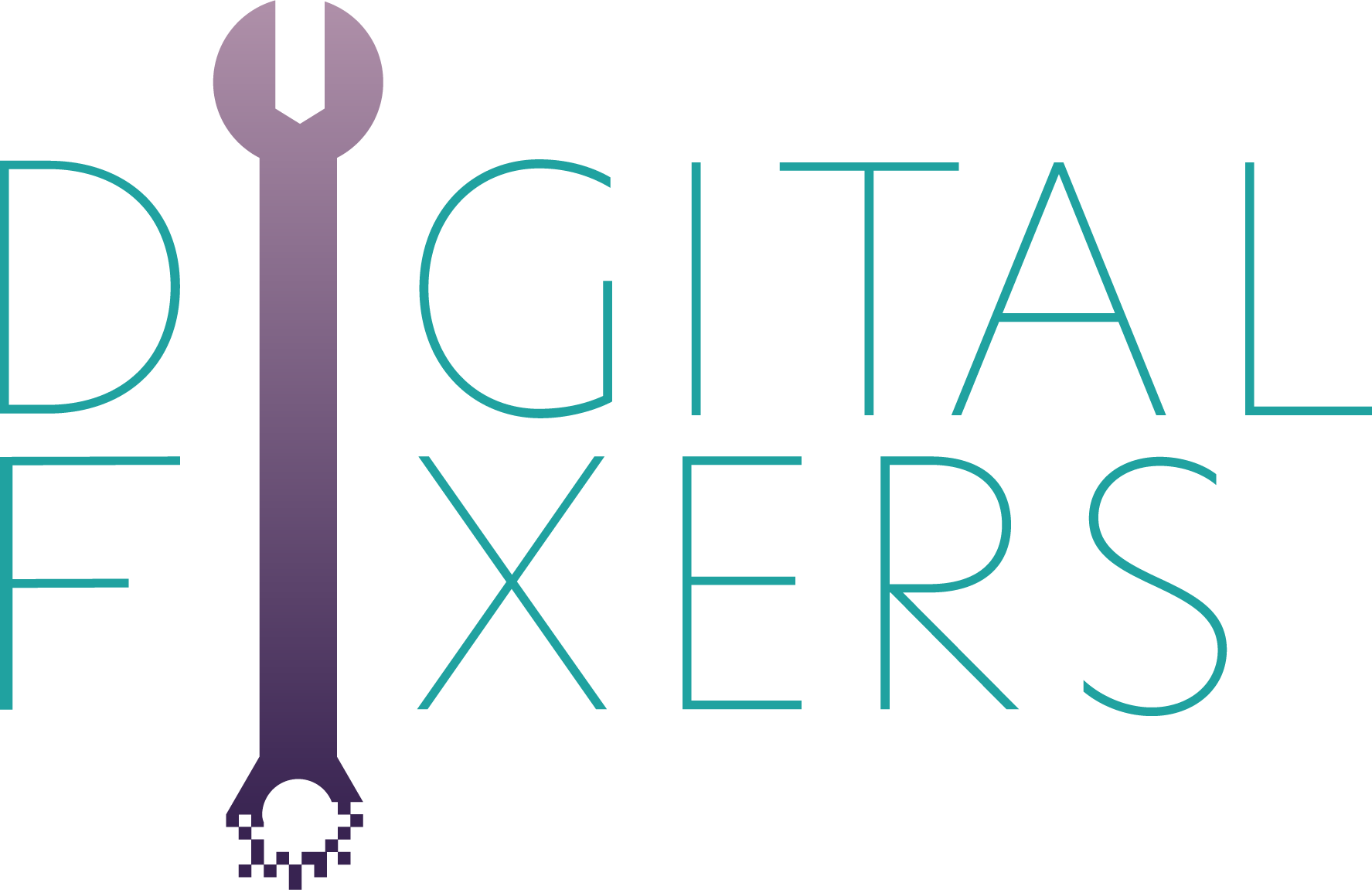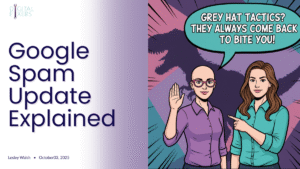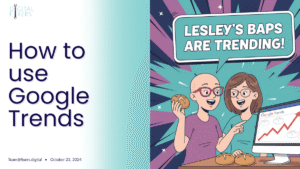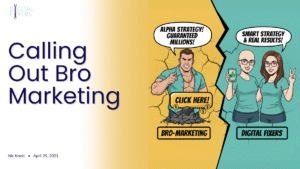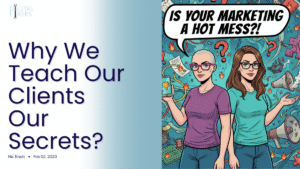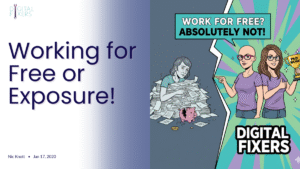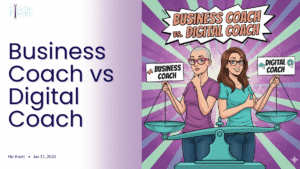All that follows in this post and is my own personal opinion ~ Nic
Introduction
Something is happening in the Digital Marketing industry.
There has been a shift in recent years, calling out and shaming so-called ‘Bro Marketing’ tactics for being unethical at best and downright untruthful at worst.
Now we’re seeing fewer examples of this (but I am regularly retargeted for these ads from some knobhead who didn’t get that memo, so it’s still going on), but something else, something potentially far more malicious has risen to take its place, and it’s frankly very unsettling and 
In this post, I’m going to talk about Bro Marketing for the uninitiated, the new ewww BFF marketing we’re seeing and its disturbing implications and finally what we need to do as online business owners.
What is Bro Marketing Anyway?
Bro Marketing has been coined as an umbrella term for the sleazy sales tactics of a lot of online businesses. In particular those who show you pictures of their lambourghinis, picturebook houses, perfect hair, big white teeth (all the better to eat you with!), maybe a cute little kid on one hip as they run their 17 fig biz from their phones, all whilst offering to show YOU how you can replicate their success in a free webinar/ masterclass/ downloadable.
Wow, thanks! Li’l old me?! Could I???
Of course you could – anybody can! I’ll show you how!
Great! Where do I sign up???
Bro marketing is the aggressive, often manipulative style of online selling that relies on hype, scarcity, and ego rather than connection or honesty.
Bro Marketing is particularly problematic because:
– It involves ‘dick-swinging‘ and using sales/net worth as a measure of success…
– Whilst simultaneously ignoring/denying/refusing to acknowledge the privilege which has enabled this success. These privileges are normally things like being born into wealth, being white, cisgender, neurotypical or otherwise not marginalised and not being the main breadwinner. (This is by no means exhaustive – the list literally goes on forever)
– It insinuates (and in some cases actually outright states) that hard work is the main thing you need to succeed, thereby implying (and again, some of them will outright state this) that if you’re not as successful as you want to be, you’re simply not doing the work.
The key features of Bro Marketing are bragging, fake urgency/scarcity, aggressive marketing and language, A LOT OF CAPITALS and vague promises of 6/7 figure businesses without actual tangible strategies… Here’s a quick video parody of Bro Marketing from the fabulous Rachael Kay Albers…
BFF/BBF Marketing
One of our readers actually had a really valid point when he said
‘Are you saying that you’ve never used any of these tactics?‘
He wasn’t being argumentative at all, but it really made me think.
Yes, we totally have used some of these ‘strategies’ because, well he said this himself ‘Isn’t it just the way marketing is?!‘ but actually, no. Marketing does not have to be like this, all fake ‘secrets’ and hype…
So, yeah Bro Marketing is pretty shitty, but in recent months something new has come into play. To be fair, it’s probably something that has been happening all along, but recent global events (for once, not Covid) have brought it to light much sooner than it would otherwise have been exposed.
I’m talking about BFF or BBF Marketing. At least that’s what I’m calling it. I don’t think there’s a name. Well probably there is, but I can’t be arsed googling it don’t know it.
BFF is Best Friend Forever, and BBF is Business Best Friend.
(Quite unlike Lesley and I who are work-wives and have an actual marriage-like relationship, which involves no sex, petty arguments and some passive-aggressive voice messages (usually from me))
This type of marketing is basically when a few hard-hitters in the online business world collaborate, promote each others’ programmes, become affiliates for each other (for money) and get in front of each others’ audiences. People like Amy Porterfield, Jenna Kutcher and Rachel Hollis for example (and these are just the high profile ones).
Seems like a good idea, right?! Their audiences probably kind of overlap, they’re teaching different but similar things and so everyone wins, right?
Right?!
The Problems With BFF Marketing
Tl;dr – here’s a handy list:
1. Profit over integrity
2. Not holding BFFs accountable
3. Selling lies and denying privilege
4. Everyone is in bed with everyone else
Done right, this type of collaborative marketing can be so powerful and beneficial to all involved. The problems occur when one or more of these people behaves in a way which is unpalatable, undesirable or even outright wrong, and no-one calls them out on it because there’s too much money at stake.
I’m talking about things like:
– Jenna Kutcher‘s white saviourism and the mess that ensued on IG after she was called out;
– Rachel Hollis being cancelled for numerous offences, including repeatedly plagiarising other peoples’ work (particularly women of colour), posting an obscenely offensive video and then blaming her team in a series of text-based Instagram posts;
– Stu McLaren’s alleged refusal to enter into uncomfortable conversations about the cultural appropriation of the term Tribe;
– ClickFunnels founder Russell Brunson referencing Adolf Hitler as an inspiration for building a following in his book Expert Secrets;
– James Wedmore‘s alleged support for Trump and QAnon (and refusal to comment on it);
– Marie Forleo closing down discussions on #BLM in her alumni group (full of people who had paid $2000 for her course), stating ‘My team aren’t working this weekend‘;
And all of these people affiliating for each other.
It’s not all behaviour that revolves around #BLM, but also attitudes and actions which are dripping with privilege and completely unrelatable for the majority.
If this happened in real-life, someone making a racist or ignorant comment, a friend saying something that was just a bit off, we’d all like to think that we’d call it out, even when the stakes are low. At the very least, we’d stop hanging around with them…
But when money (literally millions of dollars) is on the table, this doesn’t happen. They may distance themselves a bit from one another, but there’s a remarkable lack of direct address, no condemnation, sometimes just a vague acknowledgement that ‘we still need to learn‘ or ‘we’re only human‘ (more on that pathetic excuse later).
Coupled with the sleazy collaborations, the selling to each others’ audiences and the Bro Marketing tactics (oh yes, they’re still being used by BFFs!), we have a very toxic mix.
A mix that tells us if we just do the work, ignore our privilege (or lack thereof) and pay the money, we really can have it all. (And by implication if we don’t have it all yet, then it’s down to us not doing the work)
Years ago I remember seeing a Saturday Night Live type programme when one of the guests (I think it was Steve Martin) remarked that fans thought that all celebrities knew each other, when obviously they didn’t.
Except in the online marketing world, where it seems that everyone does know everyone else, they follow each other, make money off of each other (selling a big lie), holiday together, date each others’ ex-husbands (ewww), join the same masterminds and they’ve all got a ClickFunnels affiliate link and a copy of Unlimited Power on their bedside tables….
The Sleazy Underbelly of the Digital Marketing Industry
Realising that you have fallen for some kind of scam always leaves an aftertaste of shame and self-disgust in one’s mouth and it took me a while to realise a couple of things.
Firstly, these are massive influencers that we’re talking about here – PR departments, entire teams dedicated to reputation management and millions of dollars at their disposal. They are quite literally pros at peddling their snake oil (roll up, roll up, you just need to do the work and here’s the handy $97 ebook of the work you need to do! Dissolves privilege, ignores all ailments and difficulties and is 100% completely colourblind! Roll up, roll up!), so let’s not feel too bad about falling for everything they’ve been saying.
Secondly, most of the interwebs isn’t actually going to give a shit.
The social media companies will not care; a lot of their superfans won’t care (or believe) that they’ve been told and sold lies and really it probably doesn’t matter either way.
But I know, and if you’re reading this then you probably do too.
We need to change the way that we do things if we actually want a meaningful and impactful business. One that makes a positive change on lives and businesses. One that moves barriers to social mobility and gives back in a tangible way. I know that sounds trite, but if not us, who? We know the future of marketing is digital, the future of business is digital and if Covid taught us anything it’s that a lot of the world can be digital if it needs to be.
We can do better.
Possible Responses to the Sleaz
So what’s an online business owner to do?! As business owners and thought leaders (shudder), do we stop collaborating altogether and stay in our own little business bubbles? Do we unfollow all the influencers? How do we know who is connected to whom? Who supports (and makes money from) the Nazi sympathisers and performative allyship peddlers? How do we untangle this complete mess of PR and cult-like mentality without sounding like a tinfoil-hatter?!
(Sidenote; after watching a few of RKA’s videos and hours of research, I explained the situation to my husband. He looked at me liked I’d lost the fucking plot and went to put the kettle on.)
It’s going to be a work in progress and uncomfortable…
1. Integrity over profit. Always.
With great power (or audience, in this case), comes great responsibility (thanks, Spiderman – I know he wasn’t the first to say this btw).
We have a responsibility to our audiences, our clients and our businesses.
We need to make sure that we only put people and products in front of our audiences that will benefit them, align with our values and bring our people the help/support/advice that they need.
Repeat after me…
It must always be of benefit to our audience (not us).
Collaborations must be backed up by thorough research. We have a responsibility to do our due diligence when partnering with anyone – whether it be promoting software solutions or selling to someone else’s audience. The bigger your audience, the more vital it is that you do this. You, not your team. YOU.
Hold collaborators accountable. Sever ties (publicly) when you need to and be bloody sincere in any apologies you need to make. And make reparations.
Protect your audience as if they were your newborn child, because they have trusted you with their time and money.
2. Check Your Fucking Privilege
How much easier has it been to get where you are today because of a lack of barriers? Acknowledge it, call yourself out on this and give extra help to those who are facing barriers that you haven’t experienced.
I’m privileged, I know I am. I’m a straight, white, middle-class woman in the UK from a privileged position where I’m working my business alongside my full-time job so I’m not all-in. This makes things infinitely easier for me than a woman of colour for example. Or a neurodiverse individual who will face barriers that I can’t understand.
Jumping on a Facebook live and saying that I’m experiencing growth and success because of my own hard work is worse than disrespectful; it’s denying others’ experiences.
3. Never Use the ‘I’m only human’ excuse
How much easier has it been to get where you are today because of a lack of barriers? Acknowledge it, call yourself out on this and give extra help to those who are facing barriers that you haven’t experienced.
I’m privileged, I know I am. I’m a straight, white, middle-class woman in the UK from a privileged position where I’m working my business alongside my full-time job so I’m not all-in. This makes things infinitely easier for me than a woman of colour for example. Or a neurodiverse individual who will face barriers that I can’t understand.
Jumping on a Facebook live and saying that I’m experiencing growth and success because of my own hard work is worse than disrespectful; it’s denying others’ experiences.
This literally makes my fucking blood boil. I’ve seen it time and again and it never fails to get a rise (no pun intended) out of me.
The ‘I’m only human‘ excuse is a disgusting card to play; it preys on the audience relating to the girl-next-door brand that BFFs have cultivated and completely ignores that as a 6,7,8 figure business owner and a person of wealth they have access to almost unlimited resources to avoid these mistakes.
You do not get to play the ‘I’m only human’ card if you have a team of 20, millions in the bank and people at your beck and call.
As a leader and a person of influence, it is your responsibility to actively make the world a better place for everyone.
4. Have and Facilitate Uncomfortable Discussions
And I don’t just mean discussions around race, marginalisation and privilege. If someone leaves a genuine negative review on a product or service you offer, respond to it. Work it out and improve.
If someone has a negative comment about the way you run your business, discuss it with them – do not just delete threads, comments and reviews… we do not live in a George Orwell novel; we cannot just delete shit and therefore magically rewrite history as if it never happened.
We have a responsibility to our audience, even if they’ve never bought from us, to at least be honest with them.
5. Diversify Your Circle Meaningfully
That sounds like some Clubhouse trite right?! I thought long and hard about this, as we are in an informal mastermind-type WhatsApp chat group with 8/9 other business friends. As I anticipate our growth together, it would seem natural to BFF market and in fact we do it already (and we’re tiny minnows).
So diversifying your circle is about intentionally seeking out and working on your business with people outside of your experiences. This is particularly important for white people, cisgender folks and those who do not face a lot of discriminatory barriers in their lives.
6. Grow Slowly
Yeah, I know, but hear me out.
Doing all of the above whilst working in and on your business, learning how to scale, strategise and blah blah blah could slow you down.
In fact, it probably will.
If you don’t jump at every opportunity to collaborate, if you have to do meaningful research (beyond a cursory glance of an About Us page) for every single thing you recommend, then it will undoubtedly slow down your growth.
But I don’t think that’s necessarily a bad thing.
As leaders, our job is to protect those who look to us for advice. If they trust us with their time (and sometimes their money), then we better make damn sure that we are worthy of that
So yes — calling out bro marketing might be old news, but leaving it behind for good? That’s the smart move. If you’re done with chest-thumping promises and want calm, confident marketing that actually works, Pick & Fix is where we hang out and make it happen.
